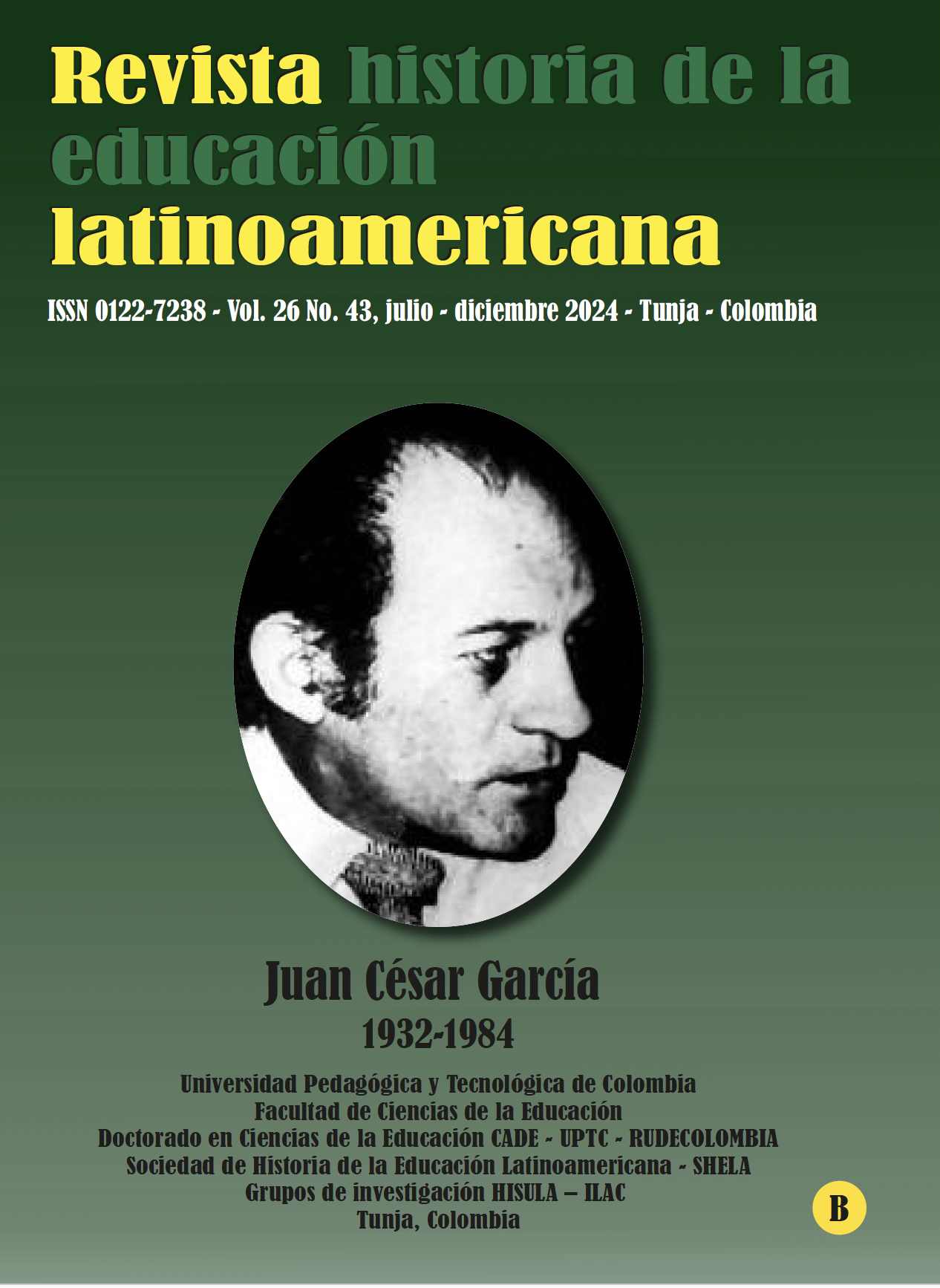Research Policies in Science and Technology in Educational Settings: International Paradigms. Period 2013-2023

Abstract
Objective: The aim of this study is to examine the policies and tensions between the OECD and UNESCO over the past ten years. We focus on their impact on Higher Education Institutions.
Originality/contribution: The importance of this study lies in the notable influence these organizations exert on university policies through specific guidelines, as well as in the relevance and scarcity of resources allocated to research in science and technology in the educational sphere.
Method/Data Collection Strategies: The study employs a mixed methodological approach, blending quantitative and qualitative research. Document review and analysis of science and technology indicators were used as primary strategies to gather and analyze data. Through this approach, trends and discrepancies in the research policies of both organizations could be identified and evaluated.
Conclusion: The results highlight a trend of uniformity in OECD policies on science, technology, and innovation (STI), often overlooking specific contexts, investment gaps and human capital in different regions. On the other hand, tensions are identified with UNESCO in key areas such as research priorities, equity in open access, ethics and social responsibility. In conclusion, the study provides recommendations to strengthen research and innovation in universities, emphasizing the need to consider local contexts and promote more inclusive and equitable policies. This study contributes to understanding university policies and serves as a reference for future research in the field of institutional research policies.
Keywords
Policies, research, science and technology, indicators, higher education, ensino superior
Author Biography
Nubia Yaneth Gómez Velasco
Doctora Ciencias de la Educación UPTC Rudecolombia. Docente titular Universidad Pedagógica y Tecnológica de Colombia. Integrante Grupo de Investigación en Estadística Gamma, integrante Grupo de Investigación HISULA nubia.gomez@uptc.edu.co
Yon Jairo Ochoa Rodríguez
Licenciado en Matemáticas y Estadística de la UPTC. Especialista en Informática para la Docencia UPTC, Duitama. Magíster en Educación de la UPTC, Tunja. Grupo de Estadística Gamma.
Santos Morena Sánchez García
Licenciatura en Trabajo Social, de la Universidad Nueva San Salvador, 2005. Maestría en Educación Superior, Universidad Modular Abierta, 2011. Técnico Superior en Visita Médica, Universidad Thoma Alva Edison. 1999.
Ángela María Manrique Rodríguez
Licenciada en Psicopedagogía de la Universidad Pedagógica y Tecnológica de Colombia, actual estudiante de Maestría en Educación Inclusiva e Intercultural de la Universidad del Bosque. Integrante Grupo de Estadística Gamma UPTC.
References
- Aldana, Eduardo, et al. Colombia: al filo de la oportunidad. Misión Ciencia, Educación y Desarrollo. Santafé de Bogotá: Tercer Mundo, 1993. http://www.plandecenal.edu.co/cms/media/herramientas/colombia_al_filo_de_la_oportunidad.pdf.
- Anlló, Guillermo y Fernando Peirano. Una mirada de los sistemas nacionales de innovación en el Mercosur: análisis y reflexiones a partir de los casos de Argentina y Uruguay. Buenos Aires: Cepal, 2005. https://repositorio.cepal.org/bitstream/handle/11362/4849/S2005592_es.pdf?sequence=1&isAllowed=y.
- Booth, Andrew, Anthea Sutton and Diana Papaioannou. Systematic Approaches to a Successful Literature Review. London: Sage, 2016.
- European Commission. Monitoring the Evolution and Benefits of Responsible Research and Innovation (MoRRI). Luxembourg: EU Publications Office, 2018. https://op.europa.eu/en/publication-detail/-/publication/1f32df40-4479-11e9-a8ed-01aa75ed71a1
- Eurostat. Science, Technology and Innovation (STI) Statistics. https://ec.europa.eu/eurostat/statistics-explained/index.php?title=Science,_technology_and_innovation_statistics
- Gómez-Velasco, Nubia Yanet, Diana Elvira Soto-Arango y José Rubens Lima-Jardilino. Políticas y medición en ciencia y tecnología en la universidad colombiana. 1992-2014. Tunja: Editorial UPTC, 2018.
- Gómez-Velasco, Nubia Yanet, Olga Yanet Acuña Rodríguez y Andrés Felipe Bautista. "Historia y MEMORIA casi 10 años consolidando comunidad historiográfica. Una mirada desde la Bibliometría". Historia y Memoria 20 (2020): 209-247. https:/doi.org/10.19053/20275137.n20.2020.9558
- Gómez-Velasco, Nubia Yaneth, José Rubens Lima-Jardilino y Diana Marcela Pedraza-Díaz. “Publicaciones científicas sobre educación en pandemia por COVID-19 y lineamientos de políticas educativas internacionales”. Revista Historia de la Educación Latinoamericana, 23, n.° 37 (2021): 185-205. https://doi.org/10.19053/01227238.12670
- Grant, Maria J., and Andrew Booth. "A Typology of Reviews: An Analysis of 14 Review Types and Associated Methodologies". Health Information & Libraries Journal 26, n.° 2 (2009): 91-108.
- OECD. Responsible Innovation in Neurotechnology: Reflections on the Ethics and Governance of Brain Computer Interfaces. Paris: OECD Publishing, 2017.
- OECD. Manual de Frascati 2015: Guía para la recopilación y presentación de información sobre la investigación y el desarrollo experimental. París: OECD Publishing, 2018. https://doi.org/10.1787/9789264310681-es.
- OECD. OECD Science, Technology and Innovation Outlook 2021: Times of Crisis and Opportunity. Paris: OECD Publishing, 2021.
- OECD. Women in Science, Technology, Engineering and Mathematics (STEM): Breaking the Gender Barrier. Paris: OECD Publishing, 2019.
- OECD. OECD Science, Technology and Innovation Outlook 2019: Leveraging Innovation in Transitioning Economies. Paris: OECD Publishing, 2019.
- Soto Arango, Diana. “Aproximación histórica a la universidad colombiana”. Revista Historia de la Educación Latinoamericana, n.° 7 (2005): 101-138.
- UNESCO. UNESCO Science Report: Towards 2030. Paris: UNESCO Publishing, 2017.
- UNESCO. Resolución 37 C/5: programa y presupuesto aprobado, 2014-2017. París:
- UNESCO Publishing, 2014. http://unesdoc.UNESCO.org/images/0022/002266/226695s.pdf.
- UNESCO. World Science Report 2020: (Policy Briefs). Paris: UNESCO Publishing, 2020.
- UNESCO. UNESCO Science Report: The Race against Time for Smarter Development. Paris: UNESCO Publishing, 2020.
- UNESCO Institute for Statistics UIS. Unesco Science Report. Towards 2030. Executive Summari. Paris: Unesco Publishing, 2015. https://uis.unesco.org/sites/default/files/documents/unesco-science-report-towards-2030-ex-sum-en.pdf
- UNESCO Institute for Statistics UIS. Guide to R&D Data Collection: Main Concepts and Definitions. Paris: UNESCO Publishing, 2020. https://uis.unesco.org/sites/default/files/documents/guide-to-rd-data-collection-main-concepts-and-definitions-2020-en.pdf
- UNESCO Institute for Statistics UIS. “Regional Density of Researchers and Their Sector of Employment”. Fact Sheet, n.° 61 (2020): 1-6. https://uis.unesco.org/sites/default/files/documents/fs61-human-resources-rd-2020-en.pdf
